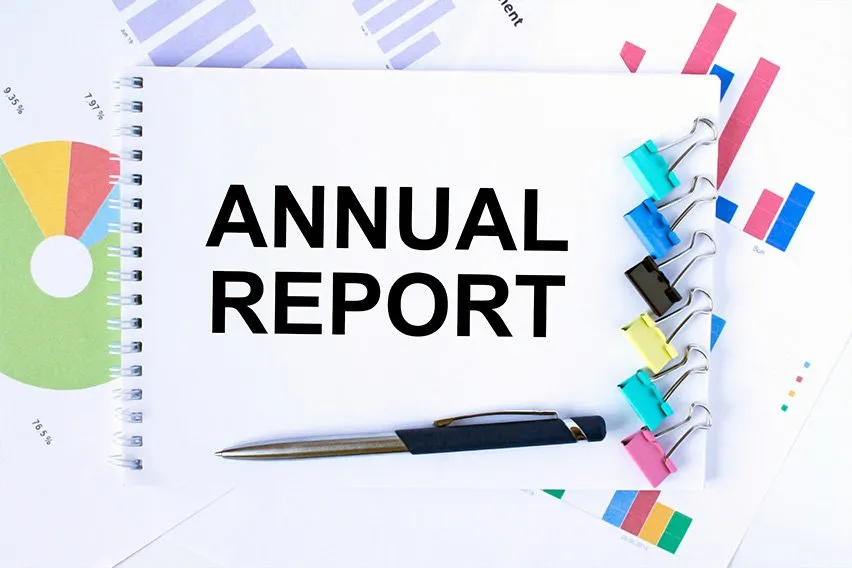How to Prepare Annual Report for Your Small Business

To prepare annual reports, small businesses need to provide a complete picture of their performance in the past year, its future goals and comprehensive financial information.
While it’s not mandatory for private companies to prepare annual reports, if you’ve recently formed a corporation, LLC or other business entity, you need to prepare and file an annual report with your state. This report provides important information about your business, including the name and address of the business, its owners and the nature of the business.
What this article covers:
What Are the Components of Annual Report?
Unlike documents that publicly held companies must produce to comply with U.S. Securities and Exchange Commission rules, state-mandated annual reports are relatively short and straightforward. They usually include basic and operational information such as:
- The name and address of your business
- Business model
- Details of the registered agent
- If it’s a corporation, names and addresses of directors and officers
- Names and addresses of members of an LLC

While it may not be mandatory, small business owners should also include the following components in their annual reports to make it comprehensive. Incorporated companies must include these components in their annual reports.
- An opening letter from the business owner
- Highlights of the past year
- Financial information, including key metrics, results of operations and the financial position
- Notes on financial and accounting data
- Complete information about products and services
- Investor information
- Management discussion
- New product plans and future activities
- Once the annual report has been prepared, external auditors must attest that the financial reports are complete and reliable.
The reports are used by investors, lenders, banks, suppliers, potential customers and employees to assess the financial position of the business and learn of any potential problems, or opportunities.
What Information Is in the Annual Report?
Individual states require all businesses to update their business information through annual reporting. Annual reports for small businesses list, summarize and record the key activities of the business in the past year and also provide a glimpse of the future. While the templates may be different, the information contained in annual reports is specific.
Business Details
Along with the basic details such as the name and address, most businesses include a description of their business segments that include products and markets served. This section provides readers with basic information of what the company does.
Annual reports also list the managers and key officers, including their backgrounds and business experience.
Highlights and Accomplishments
The yearly business reports should include economic highlights from the past year. This gives the stakeholders in your business an overview of accomplishments and how they line up with your business’ short-term and long-term goals.
A personal message – usually coming from the business owner – discusses activities over the past year, hits and misses with regard to goals and a statement about market conditions.

Financial Information
Financial statements are the mainstay of the annual reports. Usually, businesses attach financial statements to their annual reports, which includes the balance sheet, the statement of cash flows and the income statement. The financial results must be over the past five years or longer as a basis for comparison.
After preparing the annual report for your business, you also need to complete the state form and submit it, either in person or online. There may be some filing fees and other business taxes.
Missing the deadline or failing to submit the annual report to the state can lead to penalties, thus jeopardizing your good standing with the state and even lead to a possible suspension. To ensure that the information included in the annual report is in line with the individual state’s requirements.
RELATED ARTICLES

 How to Report Sales Tax: Tax Reporting for Small Businesses
How to Report Sales Tax: Tax Reporting for Small Businesses How to Measure Business Performance in 3 Steps
How to Measure Business Performance in 3 Steps How to Prepare a Trial Balance in 5 Steps
How to Prepare a Trial Balance in 5 Steps What Is a Trial Balance Report?
What Is a Trial Balance Report? What Is a General Ledger Report?
What Is a General Ledger Report? How to Improve Business Performance: Business Performance Management Tips
How to Improve Business Performance: Business Performance Management Tips